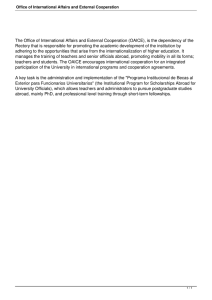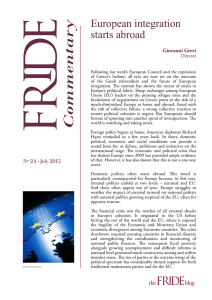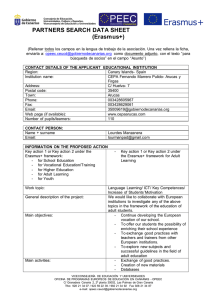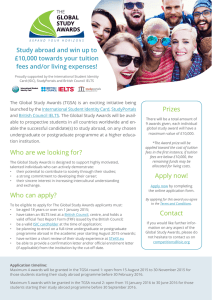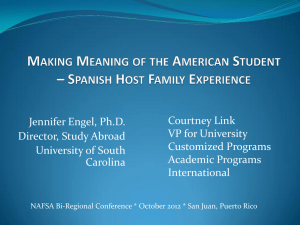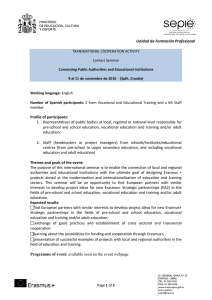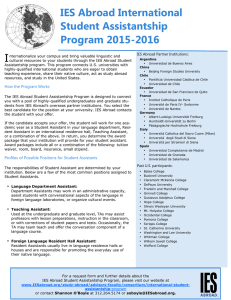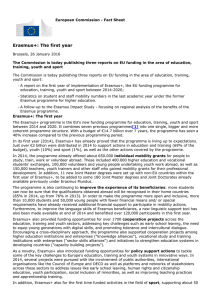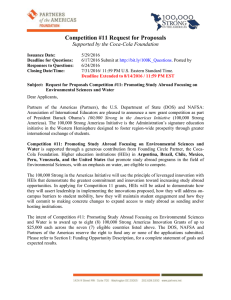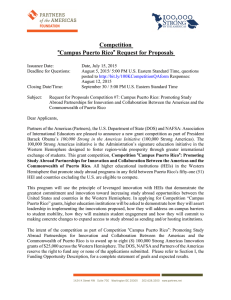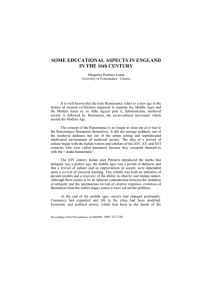Fortune favours the brave new Europeans Travel broadens the mind
Anuncio
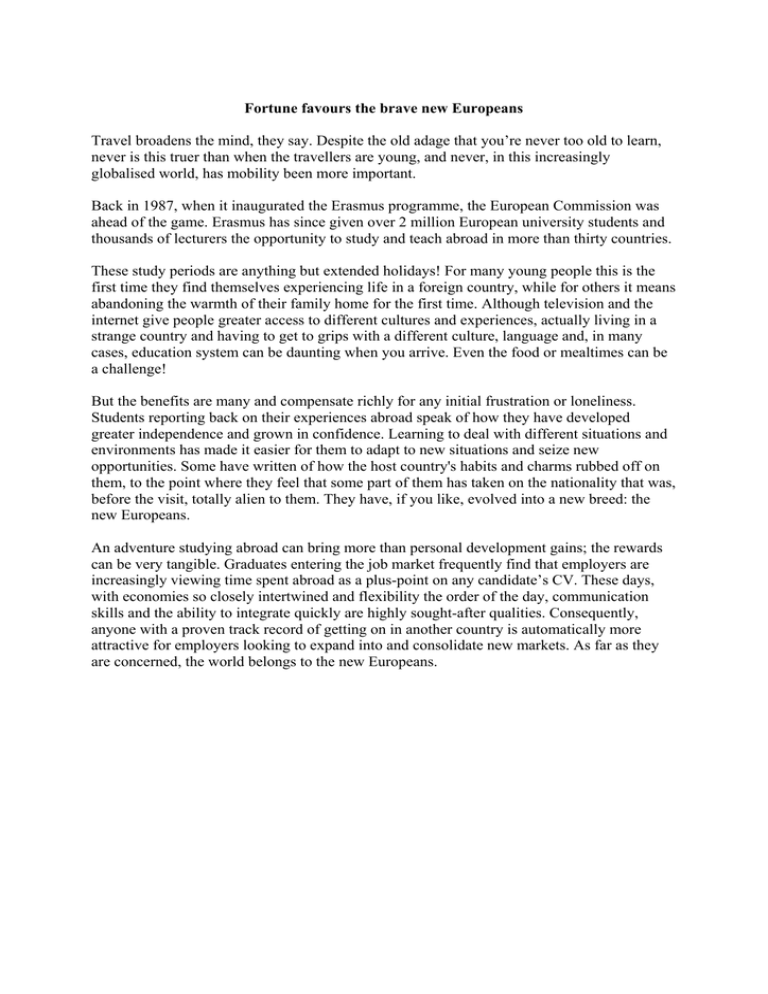
Fortune favours the brave new Europeans Travel broadens the mind, they say. Despite the old adage that you’re never too old to learn, never is this truer than when the travellers are young, and never, in this increasingly globalised world, has mobility been more important. Back in 1987, when it inaugurated the Erasmus programme, the European Commission was ahead of the game. Erasmus has since given over 2 million European university students and thousands of lecturers the opportunity to study and teach abroad in more than thirty countries. These study periods are anything but extended holidays! For many young people this is the first time they find themselves experiencing life in a foreign country, while for others it means abandoning the warmth of their family home for the first time. Although television and the internet give people greater access to different cultures and experiences, actually living in a strange country and having to get to grips with a different culture, language and, in many cases, education system can be daunting when you arrive. Even the food or mealtimes can be a challenge! But the benefits are many and compensate richly for any initial frustration or loneliness. Students reporting back on their experiences abroad speak of how they have developed greater independence and grown in confidence. Learning to deal with different situations and environments has made it easier for them to adapt to new situations and seize new opportunities. Some have written of how the host country's habits and charms rubbed off on them, to the point where they feel that some part of them has taken on the nationality that was, before the visit, totally alien to them. They have, if you like, evolved into a new breed: the new Europeans. An adventure studying abroad can bring more than personal development gains; the rewards can be very tangible. Graduates entering the job market frequently find that employers are increasingly viewing time spent abroad as a plus-point on any candidate’s CV. These days, with economies so closely intertwined and flexibility the order of the day, communication skills and the ability to integrate quickly are highly sought-after qualities. Consequently, anyone with a proven track record of getting on in another country is automatically more attractive for employers looking to expand into and consolidate new markets. As far as they are concerned, the world belongs to the new Europeans.
